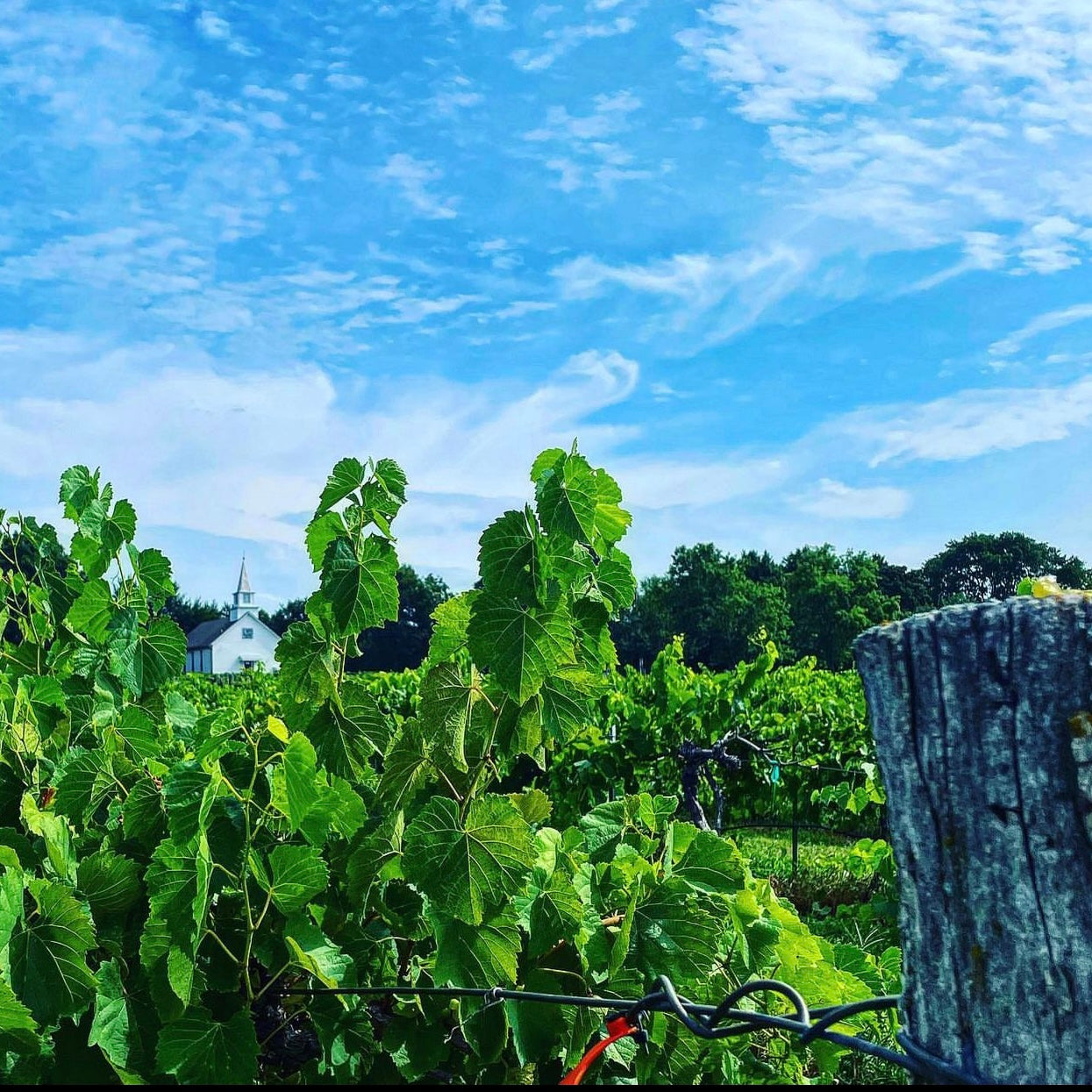Grapes (Vitis vinifera)
Grapes (Vitis vinifera)
Couldn't load pickup availability
Why We Grow It
Why We Grow It
Grapes are a staple addition to food forests due to their ability to maximize vertical space while contributing to the system's overall productivity. By climbing trees or trellises, they harmonize with other plants without competing for soil resources. Their fruit serves as a high-value food source for humans and wildlife alike, while their flowers attract pollinators. Grapes also play a key role in creating microclimates, providing shade for understory plants. Easy to grow and adaptable, grapevines enhance biodiversity, making them a cornerstone for permaculture and integrated landscapes.
How the Plant Grows
How the Plant Grows
Grape vines grow rapidly during the growing season, producing long, flexible canes that climb with tendrils. In spring, small green flowers bloom, giving way to clusters of fruit by late summer to early fall. Deciduous in nature, grapevines shed their leaves in autumn, entering dormancy over winter. Proper pruning is essential to encourage sun exposure and airflow, promoting healthier plants and abundant fruit production.
Plant Size
Plant Size
Size at Maturity- Vertical/Climber layer. Can vine up to 15-30 feet, depending on support and pruning.
Current Size- Large 12" pruned back 1 year old rooted cutting
Additional Info
Additional Info
Grapes have been cultivated for thousands of years, with their origins traced back to the Mediterranean and Central Asia. They are central to cultural and culinary traditions worldwide, from table grapes to wine and raisins. Rich in antioxidants, vitamins, and minerals, grapes are not only a delicious treat but also a nutritious one. In food forests, grapevines can climb trees or trellises, utilizing vertical space and allowing the ground layer to thrive without competition. The vines provide shade, habitat for wildlife, and a lush aesthetic.
Grapes are a versatile and fun vining ally to any garden, food forest, or permaculture system. Known for their ability to thrive in diverse climates, these vigorous, sun-loving vines produce clusters of juicy fruit perfect for fresh eating, preserves, or winemaking. Grapes exemplify the principles of vertical stacking in a food forest by climbing trees or trellises, integrating seamlessly with other plants while maximizing space and sunlight use. With proper care, grapes provide high-value yields and contribute to biodiversity and ecosystem health
Wine Grape
A dependable cold-hardy wine grape that consistently ripens in Zone 5/6 conditions. This selection produces extra-sweet clusters even in wet fall weather, with vines showing strong vigour and no powdery mildew issues in our field trials. A great fit for small-scale winemaking or juice where reliability matters more than a specific named cultivar.
Fresh Eating Grape
A vigorous and reliable fresh-eating grape well suited to Zone 5/6 growers. This line produces sweet, flavourful clusters with excellent disease resistance, remaining clean and productive through our region’s cool, wet falls. Ideal for simple backyard snacking, juicing, or kids’ grapes straight off the vine
Share


Plant Highlights
-

Water
Requires consistent watering during establishment and fruiting but becomes drought-tolerant once established.
-

Pollination
Self-fertile; pollination is wind-assisted or via insects, with some varieties benefiting from proximity to others for increased yield.
-

Soil
Prefers well-drained loamy soils with a pH of 5.5-6.5, though it is adaptable to a range of soil types.
-

Years to Bear
Begins producing fruit in 2-3 years after planting
-

Hardiness
Zone 4, tolerating temperatures as low as -34°C
-

Solar
Requires full sun part of the day, with at least 6-8 hours of direct sunlight daily.
Subscribe to our emails
Lots of Free Growing Info. Be the first to know about new plants and exclusive discounts.











